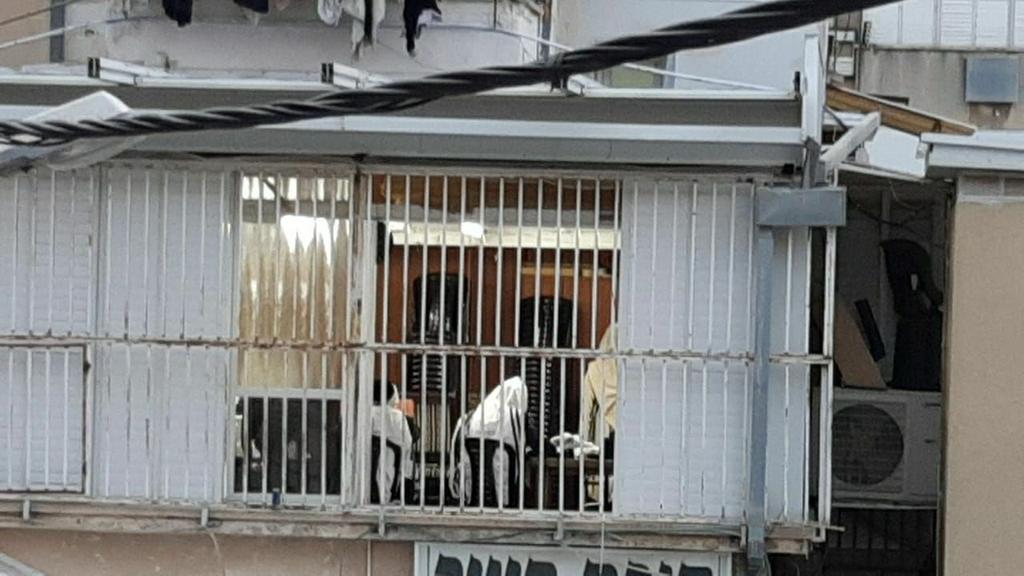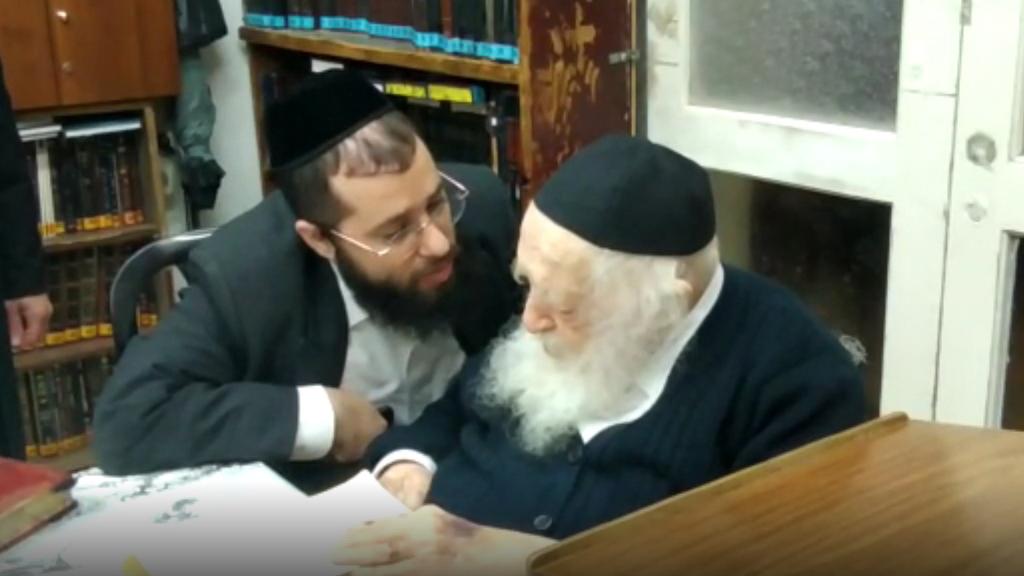While the state, the IDF and the health system are all mobilized to stop the rapid spread of coronavirus in the ultra-Orthodox community, Rabbi Haim Kanievsky, a senior leader of the sector, has been hosting covert mass prayer sessions at his home in Bnei Brak.
Just earlier this week, the 92-year-old adjudicator ordered the city's residents to refrain from holding public prayers, a stance that was even harsher than the government's at the time, who then allowed prayers in open spaces, but before banning them as well.
In recent days, however, Rabbi Kanievsky continued to hold prayer sessions at his residence with at least ten persons – breaching the government's social distancing regulations limiting prayer in groups.
A close confidant of Rabbi Kanievsky, who was asked about the rabbi's flagrant disregard for health directives, said that if ten people already live together in the same house, there is no reason for them to not pray in a minyan.
However, according to sources close to the matter, there are not ten adult Jewish men living at the house and several visitors also joined the prayer sessions.
Health and ultra-Orthodox officials say that the harsher restrictions on prayer have had a negative effect on residents and warned that more draconian guidelines could do more harm than good.
Unlike Rabbi Kanievsky, many other senior leaders in the ultra-Orthodox community have outright banned group prayers at private residences.
Shas' Moetzet Chachmei HaTorah chief, Rabbi Shalom Cohen, has over the past days remained only with his daughter at home, with a sign on the door stating that his usual public prayer sessions are suspended until further notice.
Rabbi Gershon Edelstein, head of the Lithuanian sector of the ultra-Orthodox community and a colleague of Kanievsky, stressed that "praying and reading the Torah in a minyan (a quorum of ten Jewish adults) these days – is an offense."
Although most breaches on social distancing regulations were initially perpetrated by the more radical elements within the ultra-Orthodox community, these group prayers are held by the more mainstream wings of the community, who find it difficult to not pray in public as they are used to.
The gatherings are usually held in shared buildings or residential apartments, with tenants organizing spontaneously and in secret.
Some are actually aware of the government's guidelines and even adhere to them to some degree, but in their consciousness, this is not considered a violation when it is done modestly and with the participation of only ten people who keep a large distance from one another.



